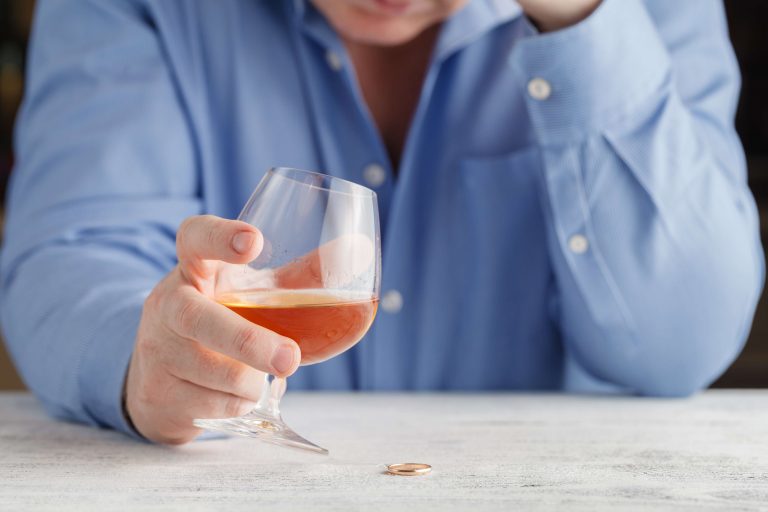For this reason, a person should drink alcohol in moderation and avoid binge-drinking or chronic heavy drinking. When you consume alcohol, the effects of alcohol on the hippocampus make the formation of long-term memories less likely. Alcohol-related blackouts (gaps in your memory while drinking alcohol) can occur because alcohol hinders the ability of the hippocampus to transfer short-term memory to long-term storage in the brain. The short-term effects of alcohol appear quickly, typically within minutes after consuming your first drink. As you drink an alcoholic beverage, alcohol moves into your bloodstream through the stomach and small intestine. Because a beer — consumed slowly — is the least dehydrating, it’s easy to jump to the conclusion that liquor is always the most dehydrating alcohol.
- Located in Northern California, our drug and alcohol detox and addiction treatment center offers a supportive environment and expert care to help individuals overcome addiction.
- So, listen to your body and don’t ignore the signs of dehydration.
- The higher the alcohol content, the greater this effect will be.
Factors Influencing Alcohol’s Dehydrating Effects
- Water scores highest due to its pure composition and zero diuretic impact.
- Dehydration is when the body does not have sufficient amounts of fluid to function effectively.
- A vodka with soda is likely more hydrating than just a shot of vodka because you’re consuming more fluids from the soda.
- If you didn’t eat and drink on an empty stomach, alcohol could be absorbed quickly into the bloodstream within minutes.
This can prematurely age you as you gain more lines and wrinkles on your face. One study with over 3200 participants found excessive alcohol consumption is linked to accelerated facial aging. The effects here include increased facial lines, eye puffiness, loss of facial volume, and broken blood vessels. Lastly, be aware of the signs of dehydration and take proactive measures to address them. Symptoms of dehydration include dry mouth, headache, dizziness, and dark urine.
Does the temperature of the alcohol you’re drinking affect hydration levels?
This can further exacerbate issues related to dehydration, as the kidneys may not be able to effectively regulate water balance in the body. One of the reasons alcohol has a dehydrating effect is that it suppresses the release of vasopressin, also known as the antidiuretic hormone. This hormone helps the body regulate the amount of water excreted by the kidneys. When vasopressin is suppressed, the kidneys release more water, leading to increased urine production and dehydration. Alcohol disrupts your body’s fluid balance, depleting essential electrolytes like sodium and potassium. To recover effectively, focus on replenishing both fluids and these lost minerals.

Why Is Alcohol a Diuretic?
To stay hydrated, drink water before, during, and after consuming alcohol. I’m not talking about chugging a gallon of water right before you head out, but rather, start upping your water intake a few hours beforehand. Think of it like prepping your body for a marathon, but instead of running, you’re… This helps ensure your body has a good https://comercial.mnprogram.com/2024/04/25/countering-the-abstinence-violation-effect-3/ baseline of fluids to work with, making it less likely you’ll get hit hard by dehydration later. Drinks with a higher alcohol content — and therefore more potential to dry you out — include vodka, gin, rum, and whisky. Beer and wines, meanwhile, tend to have lower alcohol content, though fortified wines like sherry and Madeira pack a kick at above 14.5% alcohol.
- The alcohol and sugar in wine take your body a good amount of energy to break down compared to simpler foods or beverages.
- Breathalyzers can be used to check if someone’s driving while intoxicated.
- This means more water is flushed out of your system, leaving you dehydrated.
- This is partly because our soil is incredibly depleted, so our fruits and veggies don’t have the mineral content they once did.
- These can all be exacerbated by alcohol consumption, making it important to be mindful of your hydration levels when drinking.
- Also, darker liquors contain more congeners, byproducts of fermentation, which can exacerbate hangovers and contribute to dehydration.
The outcomes are important for health communication purposes, specifically towards the elderly, who are at an increased risk of dehydration. Understanding the dehydrating effects of alcohol, alongside its other potential risks, is crucial for maintaining overall health and well-being. Alcohol, while often a social lubricant, can have significant impacts on your body’s hydration levels due to its diuretic properties. Recognizing the symptoms of dehydration and implementing the strategies discussed can help mitigate these effects, allowing for a safer and more enjoyable experience when does alcohol hydrate you consuming alcohol.

We have deliberately chosen commercially available drinks to increase the practical applicability. Future research, however, might consider matching the beverages in terms of the nutritional composition. A final limitation is that no blood measurements were included, and, therefore, we are not able to provide insights on the mechanism underlying the diuretic effects of alcohol. In a healthy person, the circulating hormones arginine vasopressin and aldosterone largely determine the produced volume of urine 29.

This condition is characterized by inflammation and scarring of the kidneys, which can ultimately lead to kidney failure. According to the National Institute of Health, excessive alcohol alcoholism treatment consumption is a major risk factor for the development of kidney disease. According to the World Health Organization, alcohol is a leading contributor to dehydration, as it interferes with the body’s ability to reabsorb water.